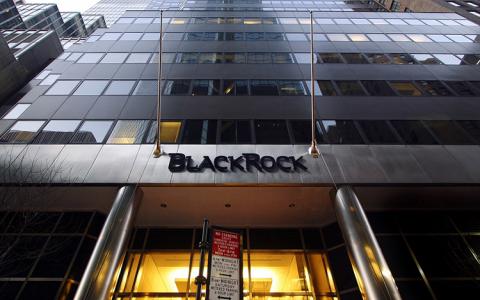
BlackRock Inc. said it’s turned bearish on credit and government bonds, downgrading the two asset classes to underweight over the long-term because of high valuations and inflation expectations.
A stronger economy on the back of the Covid-19 vaccine rollout, combined with the potential for as much as $2.8 trillion of additional fiscal stimulus and higher inflation will drive up nominal yields this year, the world’s biggest money manager said in a note Monday. The surge in public debt, and increased appetite for it, could also pose a risk over the longer-term, the firm said.
“We turn underweight credit due to rich valuations and are now modestly overweight equities,” Jean Boivin, head of the BlackRock Investment Institute, and others said in the note. “Equities valuations are also closer to long-term averages after factoring in historically low interest rates and an improving earnings outlook.”
The call is in line with a broader concern that’s sent the 10-year Treasury yield soaring in recent weeks: that price pressures are poised to re-emerge amid an economic boom powered by vaccines, pent-up consumer demand and another round of government stimulus. The New York-based firm said it prefers inflation-linked bonds.
“A key risk is a further increase in long-term yields as markets grapple with an economic restart that could beat expectations,” the firm said. “This could spark bouts of volatility, even though we believe the Fed would lean against any sharp moves for the time being.”
A selloff in Treasuries intensified Monday, bringing forward expectations for U.S. rate hikes to as early as mid-2023. Rising rates have hurt investment-grade bonds, which are down 2.5% on a total return basis this year through Friday, according to Bloomberg Barclays index data. BlackRock said it’s underweight investment-grade credit in the near-term, as it sees little room for further yield compression.
‘Yield-Starved World’
Elsewhere in credit, BlackRock said it likes global high-yield over the short-term, despite a rally in the asset class that recently sent yields on junk bonds below 4% for the first time. Still, it “remains an attractive source of income in a yield-starved world.” The firm is broadly neutral on credit in the short-term, a period it defines as the next six months to a year.
BlackRock said climate change played a role in its decision to add exposure to stocks both in the near- and long-terms. As the world’s largest shareholder, the firm has in recent years pressured companies to take steps to lower their environmental impact.
“Incorporating climate change in our expected returns brightens the appeal of developed market equities given the large weights of sectors such as tech and health care in benchmark indexes,” the firm said. In the short-term, “we stay overweight equities as we expect the restart to re-accelerate and interest rates to stay low.”
BlackRock said that while the technology sector will continue to profit from long-term structural changes, it may be challenged by higher corporate taxes and stronger regulation. Still, the firm favors tech and health-care stocks in the short-term, as well as some cyclical sectors, according to the note.
This article originally appeared on Yahoo! Finance.



